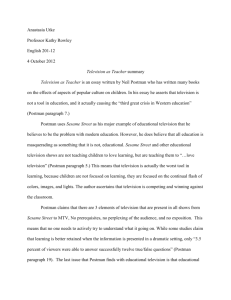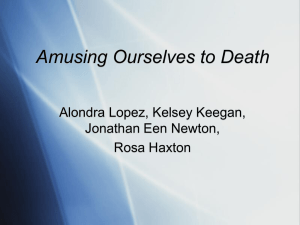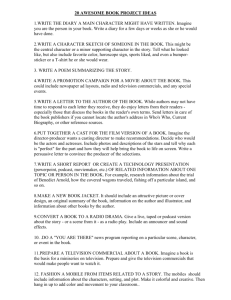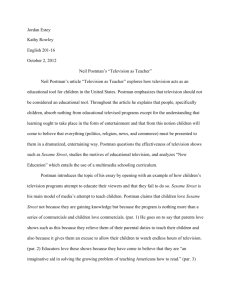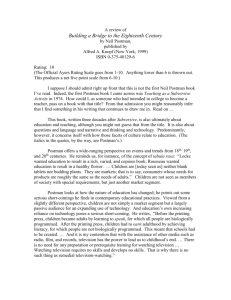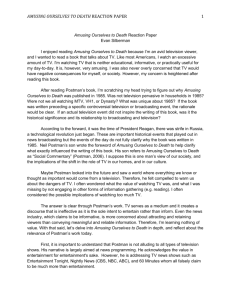Neil Postman Summary 2
advertisement
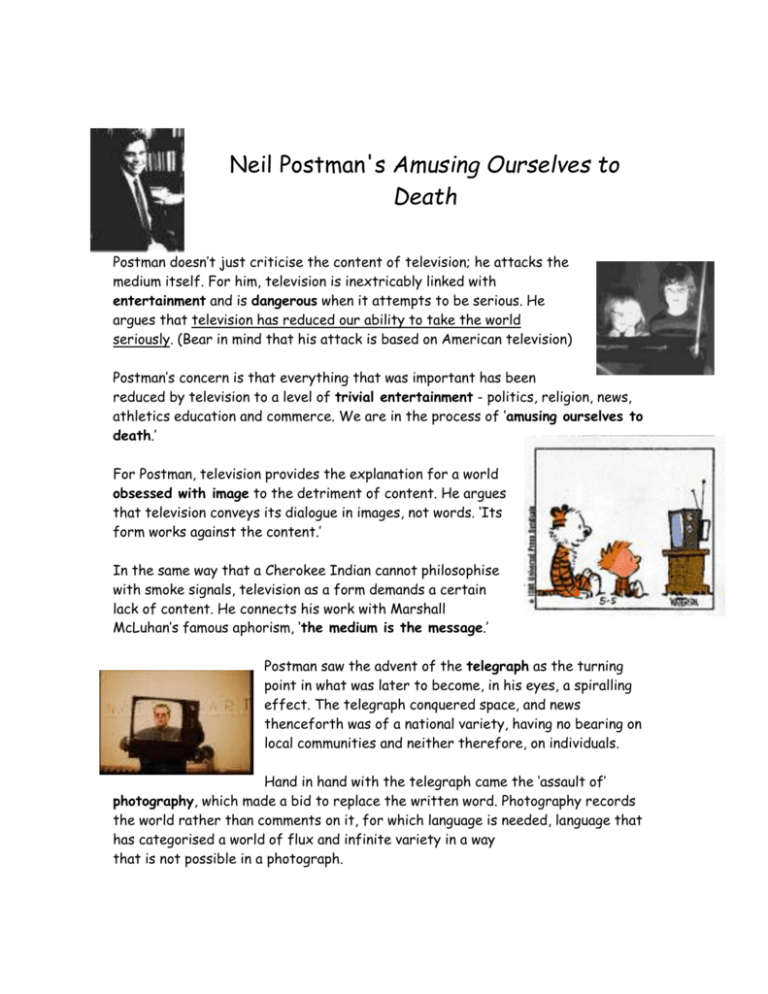
Neil Postman's Amusing Ourselves to Death Postman doesn’t just criticise the content of television; he attacks the medium itself. For him, television is inextricably linked with entertainment and is dangerous when it attempts to be serious. He argues that television has reduced our ability to take the world seriously. (Bear in mind that his attack is based on American television) Postman’s concern is that everything that was important has been reduced by television to a level of trivial entertainment - politics, religion, news, athletics education and commerce. We are in the process of ‘amusing ourselves to death.’ For Postman, television provides the explanation for a world obsessed with image to the detriment of content. He argues that television conveys its dialogue in images, not words. ‘Its form works against the content.’ In the same way that a Cherokee Indian cannot philosophise with smoke signals, television as a form demands a certain lack of content. He connects his work with Marshall McLuhan’s famous aphorism, ‘the medium is the message.’ Postman saw the advent of the telegraph as the turning point in what was later to become, in his eyes, a spiralling effect. The telegraph conquered space, and news thenceforth was of a national variety, having no bearing on local communities and neither therefore, on individuals. Hand in hand with the telegraph came the ‘assault of’ photography, which made a bid to replace the written word. Photography records the world rather than comments on it, for which language is needed, language that has categorised a world of flux and infinite variety in a way that is not possible in a photograph. Arguments against Postman: He presents very little evidence TV has had a hugely powerful role in educating people about worlds they would never otherwise have encountered TV doesn’t have to trivialise. People watching tragedy in Africa don’t sit there laughing More people are reading the printed word than ever before, so there is no reason to see television as the death-knell of literacy Why does it have to be EITHER television OR the printed word? Writers like John Fiske have shown that there is a grammar of television. We should teach people how to discriminate in their viewing, rather than dismissing television. Some truth in his arguments?: TV is obsessed with image It may pander to short attention span It is a visual medium, and this may not be the best medium for communicating ideas Final thought For Postman, ‘serious television’ is an oxymoron (a contradiction). So what do you need to know? What Postman says Some specific examples / quotes How he relates to other critics (eg McLuhan) What you think are the strengths / weaknesses of television GB March 3, 2016



